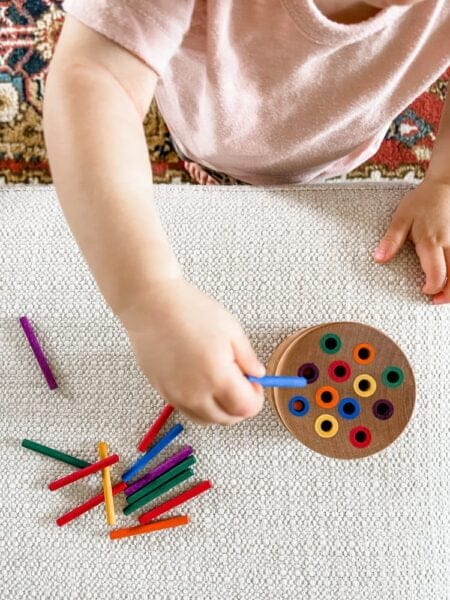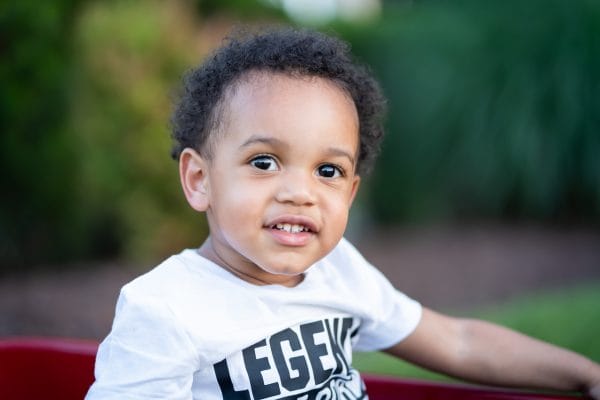Montessori Parenting Explained: Fostering Independence and Respect in Child Development
When it comes to raising children, parents often seek out methodologies that will help nurture their child’s development in the most effective and positive way. One such approach that has gained popularity over the years is Montessori parenting. This method of parenting takes inspiration from the Montessori educational model, which emphasizes independence, freedom within limits, and respect for a child’s natural psychological, physical, and social development.
In this article, we’ll delve into what Montessori parenting is, the key characteristics of the Montessori parenting style, and provide practical Montessori parenting tips that can be applied in everyday life.

What is Montessori Parenting?
![]()
Montessori parenting is a style that complements the educational philosophy developed by Dr. Maria Montessori in the early 20th century. It focuses on fostering a supportive environment for children that encourages curiosity, learning through exploration, and the development of self-discipline and independence. Unlike traditional parenting approaches that often focus on what the parent does for the child, Montessori parenting shifts the focus to what the child can do for themselves, thereby promoting a sense of capability and self-reliance.
Key Characteristics of Montessori Parenting Style
![]()
The Montessori parenting style is characterized by several key principles:
- Respect for the Child: Treating the child as an individual with their own thoughts, desires, and feelings.
- Independence: Encouraging children to do things by themselves, which fosters self-confidence and practical life skills.
- Freedom Within Limits: Allowing children the freedom to explore and learn at their own pace, within a set of clear, consistent boundaries.
- Prepared Environment: Creating a child-friendly space that is safe, accessible, and conducive to independent exploration and learning.
- Observation: Parents closely observe their children to understand their needs, interests, and progress without interfering too much in their activities.
- Educational Materials: Use of age-appropriate, tactile, and self-correcting learning materials that promote hands-on learning and discovery.
Montessori Parenting Tips
![]()
For those interested in incorporating Montessori principles into their parenting, here are some practical tips:
- Encourage Independence: Allow your child to perform age-appropriate tasks by themselves, such as dressing, tidying up toys, or preparing simple snacks.
- Respectful Communication: Speak to your child as you would to an adult, with courtesy and clear explanations, avoiding baby talk.
- Involve Your Child: Include your child in everyday activities, such as cooking and cleaning, to foster a sense of belonging and responsibility.
- Minimize Rewards and Punishments: Instead of using rewards and punishments to control behavior, use natural or logical consequences to teach your child about the outcome of their actions.
- Follow Your Child: Pay attention to your child’s interests and support them in diving deeper into these topics, rather than pushing your own agenda.
By following these Montessori parenting tips, parents can help their children develop independence, critical thinking, and a love of learning.
Creating a Montessori-Friendly Home
![]()
Creating a Montessori-friendly home doesn’t mean you need to overhaul your entire house. It starts with small changes that can have a significant impact:
- Accessible Spaces: Arrange furniture and place items on low shelves to make them accessible to children, promoting independence.
- Simple Design: Keep the environment clutter-free and organized to avoid overstimulation and to help children focus on their activities.
- Quality over Quantity: Choose fewer, higher-quality toys and materials that are educational and encourage imagination over electronic or passive toys.
- Nature-Inspired: Incorporate elements of nature into your home with plants, natural fibers, and wood to foster a connection with the natural world.
- Real Tools: Provide children with real, child-sized tools and utensils to help them engage in practical life skills.
These elements create a home environment that aligns with the Montessori philosophy, supporting children’s natural desire to learn and grow.
Examples and Case Studies
![]()
One way to understand the impact of the Montessori parenting style is to look at real-life examples. Numerous case studies have shown positive outcomes from Montessori-based parenting approaches:
- A study comparing outcomes of children in a Montessori program versus traditional schooling found that Montessori children performed better in mathematics, had more developed social skills, and displayed a greater sense of justice and fairness.
- Research on self-regulation in Montessori classrooms suggests that the Montessori environment helps develop better executive function skills, which are crucial for managing behavior and achieving goals.
- Parents who have adopted the Montessori parenting style often report increased independence in their children, improved concentration, and a greater willingness to participate in household chores and problem-solving activities.
These examples highlight the positive effects that Montessori parenting can have on a child’s development and the long-term benefits that may ensue.
Addressing Common Misconceptions
![]()
Despite its benefits, there are some common misconceptions about Montessori parenting that can lead to confusion:
- Misconception: Montessori parenting is overly permissive.
- Reality: While it encourages freedom, it’s within clear boundaries to ensure safety and respect for others.
- Misconception: Montessori parenting doesn’t allow for structure.
- Reality: It provides structure through a consistent routine and prepared environment, allowing children to predict and understand their day.
- Misconception: Montessori parenting is only for the wealthy.
- Reality: Many Montessori principles can be applied without any cost, such as respecting the child and encouraging independence.
Understanding these misconceptions can help parents more accurately assess whether the Montessori parenting style aligns with their family’s values and goals.
Frequently Asked Questions
![]()
How can I create a Montessori-friendly home?
To create a Montessori-friendly home, provide a safe, accessible environment where everything is child-sized and within reach. Encourage independence by creating organized spaces where your child can choose activities, and make sure to include practical life activities that children can do on their own.
How do I discipline my child in a Montessori way?
Montessori discipline involves setting clear boundaries with respect and consistency. Focus on natural consequences, guidance rather than punishment, and teach problem-solving skills. It’s important to model the behavior you want to see and give your child choices within limits.
What kind of toys should I choose for a Montessori environment?
Choose toys that are made from natural materials and are based on reality. They should be developmentally appropriate, promote learning and creativity, and encourage children to explore and discover through play.
Can I use Montessori principles with my baby?
Yes, you can use Montessori principles with your baby. Provide a safe, simple environment with a few carefully selected toys that encourage exploration. Allow them freedom of movement and do not rush their developmental milestones.
How do I encourage independence in my child?
Encourage independence by allowing your child to do things for themselves within a safe and child-friendly environment. Offer choices and allow them to perform tasks like dressing, feeding, and cleaning up with guidance as needed.
Is Montessori only for young children?
No, Montessori principles can be applied to children of all ages, from birth to adolescence. The approach adapts to meet the developmental needs of each age group.
How does Montessori parenting differ from traditional parenting?
Montessori parenting differs from traditional parenting in that it emphasizes child-led learning and independence. It encourages parents to respect their child’s natural development and learning pace, rather than using rewards and punishments to control behavior.
What should I do if my child loses interest in a Montessori activity?
If your child loses interest in a Montessori activity, it may be a sign that the activity is either too easy, too difficult, or not appealing to them. Observe your child to understand their current interests and developmental needs, and adjust the activities accordingly.
How can I incorporate Montessori principles in daily routines?
Incorporate Montessori principles into daily routines by involving your child in practical life activities such as cooking, cleaning, and self-care. Establish consistent routines that allow your child to predict what happens next, giving them a sense of control and security.
Can Montessori parenting work alongside other educational methods?
Yes, Montessori parenting can complement other educational methods. It’s about respecting and supporting your child’s natural learning process, which can enhance any educational experience. It’s important to maintain consistency in your approach and adapt as needed to your child’s individual needs.
Conclusion: The Integrated Approach of Montessori Parenting
![]()
In conclusion, Montessori parenting offers a holistic approach to child-rearing that emphasizes independence, respect, and a love of learning. By creating a child-centered environment and following the child’s lead, parents can foster their child’s development in a way that is both nurturing and empowering. While no parenting style is without its challenges, Montessori parenting provides a framework that many families find supportive and effective in raising well-rounded, confident, and capable children.
The key takeaways of Montessori parenting include the importance of a prepared environment, the value of observing and following the child’s interests, and the benefit of minimizing external rewards and punishments in favor of natural consequences. By incorporating these principles into daily life, parents can provide their children with the tools they need to become independent, responsible, and compassionate individuals.
Whether fully adopted or integrated in parts, the Montessori parenting style has the potential to enrich the parent-child relationship and lay a strong foundation for a child’s future success. With its focus on respect, independence, and a nurturing environment, Montessori parenting continues to influence families around the world in their quest to raise happy, healthy, and self-motivated children.





